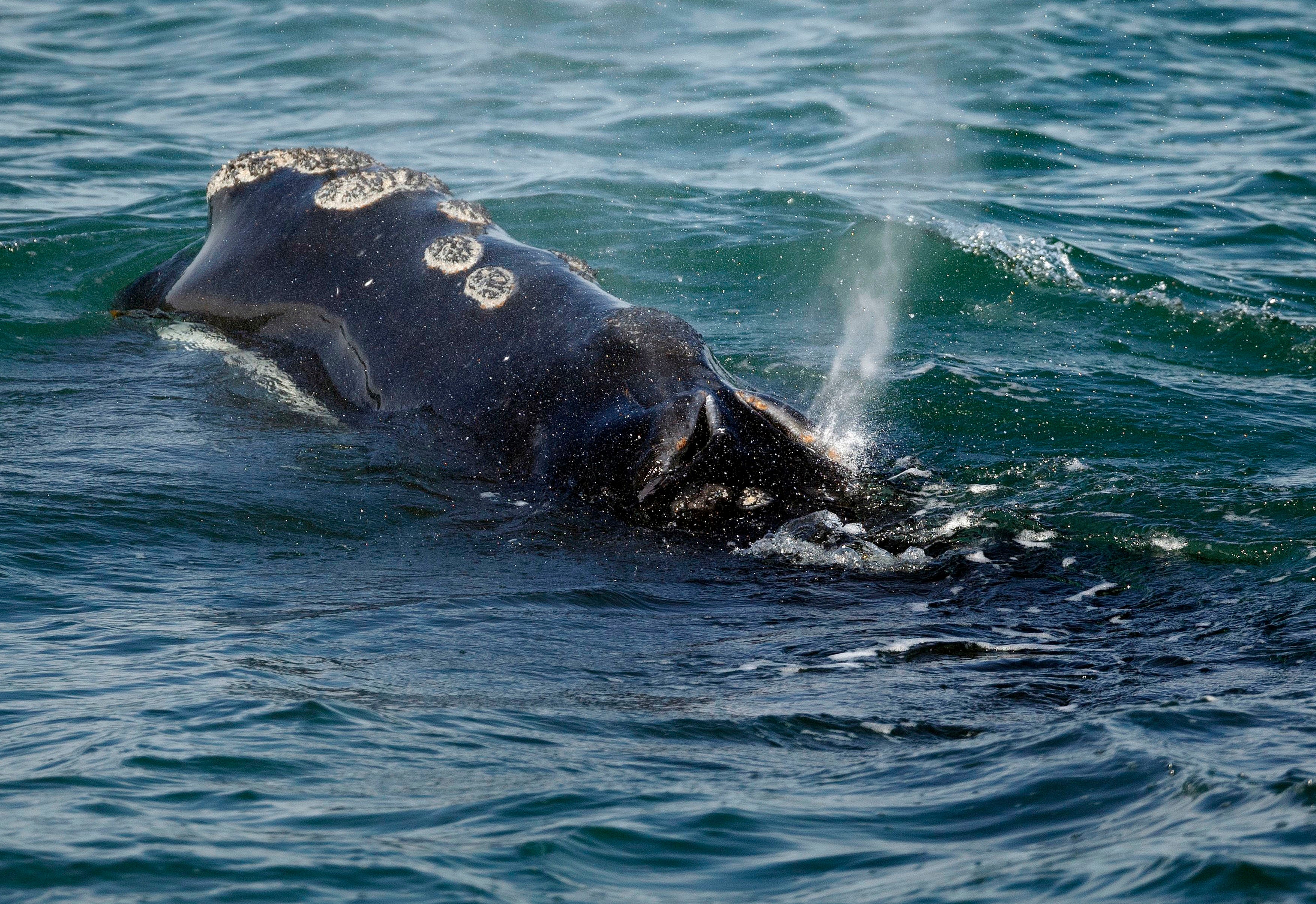Environmental groups demand emergency rules to protect rare whales from ship collisions
A coalition of environmental groups is calling on the federal government to enact emergency rules to protect a vanishing species of whale from lethal collisions with large ships

Your support helps us to tell the story
From reproductive rights to climate change to Big Tech, The Independent is on the ground when the story is developing. Whether it's investigating the financials of Elon Musk's pro-Trump PAC or producing our latest documentary, 'The A Word', which shines a light on the American women fighting for reproductive rights, we know how important it is to parse out the facts from the messaging.
At such a critical moment in US history, we need reporters on the ground. Your donation allows us to keep sending journalists to speak to both sides of the story.
The Independent is trusted by Americans across the entire political spectrum. And unlike many other quality news outlets, we choose not to lock Americans out of our reporting and analysis with paywalls. We believe quality journalism should be available to everyone, paid for by those who can afford it.
Your support makes all the difference.A coalition of environmental groups is calling on the federal government to enact emergency rules to protect a vanishing species of whale from lethal collisions with large ships.
The groups filed their petition with the National Oceanic and Atmospheric Administration on Sept. 28 in an effort to protect the North Atlantic right whale. The giant whale numbers less than 340 and has been in steep decline in recent years.
Ship collisions are among the most dire threats to the survival of the whale, according to NOAA. The groups cited a proposed rule from the agency designed to prevent such ship strikes by making more vessels slow down for whales. NOAA has yet to release a final updated speed rule despite proposing new rules more than a year ago, the environmental groups said.
The groups argue it's critically important to get new rules on the books before the upcoming calving season, during which the whales migrate hundreds of miles from waters off New England and Canada to their calving grounds off Florida and Georgia.
“Even one ship strike would bring these whales closer to extinction, but speed limits can help prevent that. Federal officials can’t sit back and do nothing while right whales are in danger," said Kristen Monsell, oceans legal director at the Center for Biological Diversity, one of the groups that filed the petition.
NOAA anticipates announcing its final action on the proposed rule this year, said Katie Wagner, a spokesperson for the agency. That could land in the middle of calving season, and include a later date for the regulations to actually go into effect.
The agency is aware of the petition but does not comment on matters related to litigation, Wagner said. The agency is considering expanding “slow zones” off the East Coast, and requiring more vessels to comply with those rules.
NOAA denied a request from environmentalists last year to immediately apply new rules. The agency said at the time via public documents that it was focused on “long-term, substantive vessel strike risk reduction measures.” NOAA received more than 90,000 comments on the proposed rule and is using them to inform its final action, Wagner said.
The right whales were once abundant off the East Coast, but they were decimated during the commercial whaling era. They have been protected under the Endangered Species Act for several decades. The whales are also vulnerable to accidental entanglement in commercial fishing gear, and proposed new restrictions to prevent such entanglements have been the subject of a lengthy court battle between the federal government and fishermen.